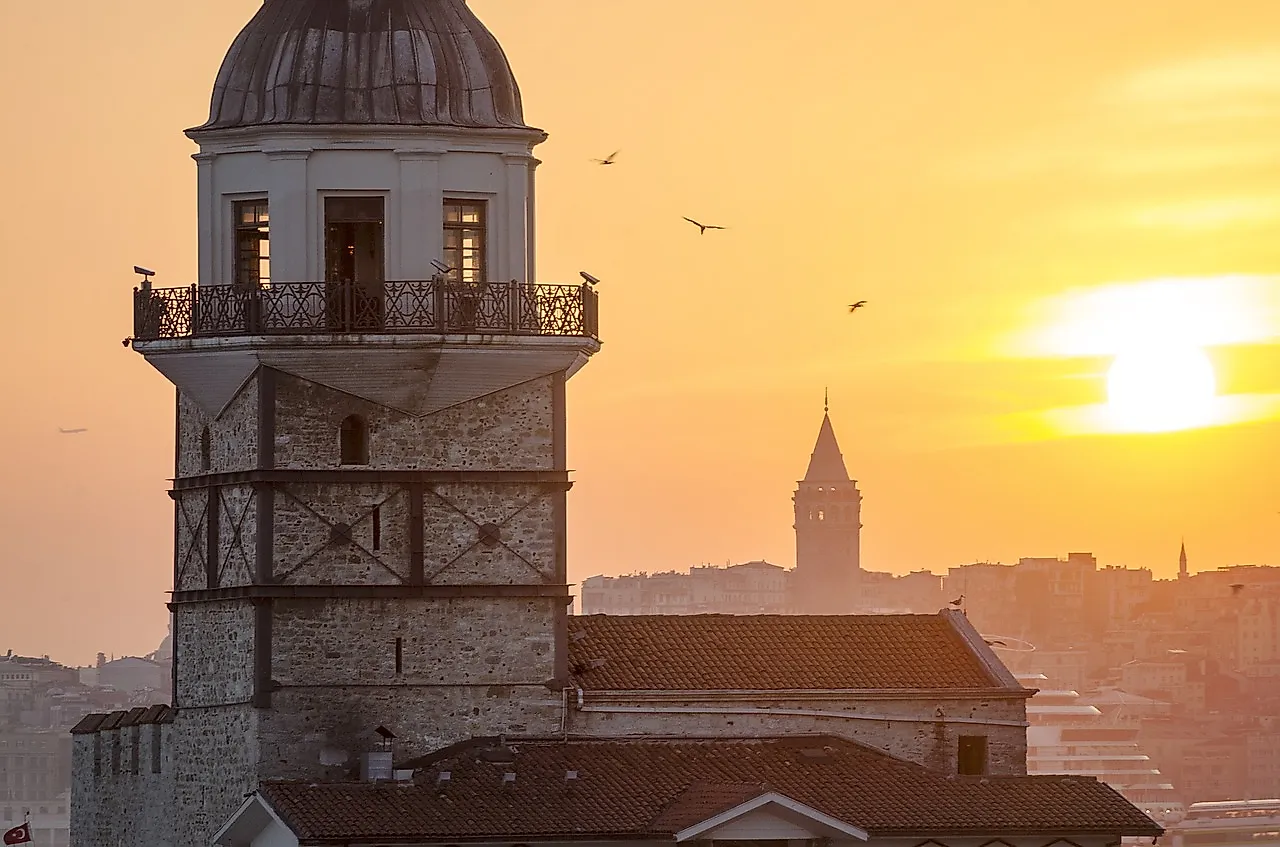The Turkish People - Cultures around the World

5. Description
The Turkish people, or the Turks, are part of the Turkic ethnic group, and are considered to be the most populous among all the Turkic peoples. Their language, Istanbul Turkish, originates from the Turkic language family and they share cultural and historic backgrounds to such groups as the Ottoman Turks, Crimean Karaites, Kazahs, Uzbeks, and Tuvans to name a few. The Turkish people live in Turkey, which occupies Asia Minor as well as a small slice of the European continent. Recent modern migrations, however, have spread their far-reaching presence over North America, Western Europe, the former Soviet Union, and even Oceania. Traditional areas of residence for the Turkish people outside of Turkey have long been neighboring Meskhetia (in Georgia) and the nearby Meditteranean island of Cyprus.
4. Architecture
There are several factors which have affected the Turkish people’s utilization of space and architecture, including foreign influence on creative thought, economic conditions, political ideologies, lifestyle, tradition and environment. Early building designs boast of impressions from their imperial past, which is apparent in the Ottoman architecture. Not only is it characterized by Islamic and Seljuk artisanship, but also Byzantine elements as well. Western influences, however, have pushed Turkey’s recent leaders and builders to establish a very different brand of architecture in the capital city of Ankara, and one that reflects Western culture and technology. Skyscrapers and high-rise commercial and residential buildings are packed into Turkey’s Ankara and Istanbul, although small villages and towns still have the traditional house structures. Therein, residences are divided into the harem (private family quarters) and the selamik (public reception room) in abundance.
3. Cuisine
The Turks are world-renowned for their richly flavored cuisine, which carries with it Ottoman, Middle Eastern, and Balkan, as well as Iranian, influences. Common dishes served in restaurants are gözleme, kokore, köfte, and börek. The best Turkish meals, however, are still homemade, usually starting with a soup, followed by a vegetable dish prepared with meat and, of course, with either bulgur or rice on the side, plus some sort of salad. Oils and fat are often used during their meal preparations, as well as favorite ingredients that vary by the cook, such as eggplants, onions, green peppers, beef, tomatoes, chicken, and lamb. Turkish cuisine also often includes a variety of nuts, such as almonds, walnuts, chestnuts, and hazelnuts. Fruits commonly found in the Turkish diet are pears, plums, pomegranates, figs, apples, and grapes. Other dishes that the Turks are well known for are baklava, kadaif, helva, lokum, marzipan, Turkish tea, Turkish coffee, mercimek köfte and kebaps.
2. Cultural Significance
99% of the Turkish people are believers of Islamic faith, while most of the rest are either Jewish or Christian. Turkish folk music, Ottoman Classical music, arabesk and Fasil are what’s considered as traditional Turkish music, while modern music Turkish music includes pop, hip hop and rock. The presence of many dialects being used in Turkey has greatly influenced the development of their literature. These different types of Turkish dialects are usually referred to as either agiz or sive. The prominence of Turkish culture has also allowed it to make significant contributions in the arts. Poetry has historically been the most important form of literature, with renowned poets including the more traditional works of Ahmed Hâşim alongside interesting and at times radical divergences of the Garip Movement and the Second New Movement. Turkish cinema has also been highly regarded worldwide, especially in connection with Germany and the Berlin International Film Festival, with famous directors including Semih Kaplanoğlu and Fatih Akin (himself a German-Turkish dual citizen).
1. Threats
While Turkey has taken great strides in incorporating Western cultural influences into their daily lives, they have managed to maintain their historical and religious values. This includes those traditions that have most strongly shaped the most basic unit of Turkish society: the Family. Current questions and issues facing the region include terrorism and the ongoing refugee crisis. These days, Turkey faces significant threats, including government instability, violence, economic downturn and political unrest, although analysts have remained optimistic in their forecast of the future of both the country of Turkey and the overall welfare of Turkish culture.











